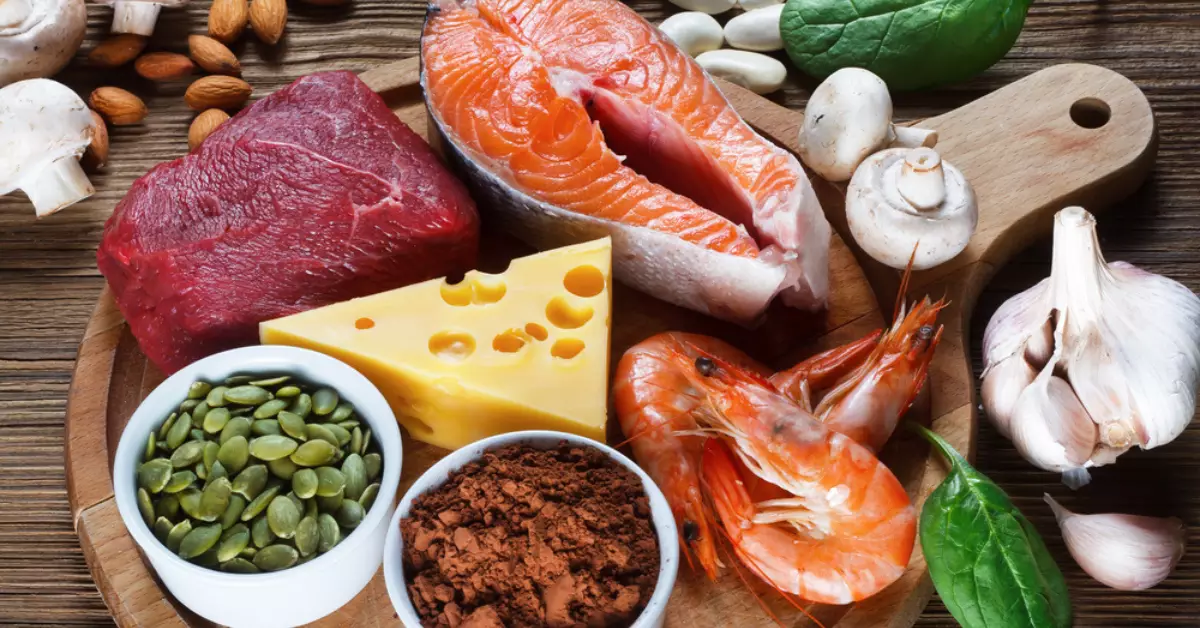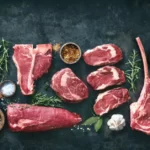Zinc, a micronutrient of immense importance, plays a pivotal role in numerous physiological functions. Its significant contribution to processes such as growth, immune function, and cognitive health marks it as an essential element in our diet. More often than not, we obtain this vital nutrient from the food we consume, making it crucial to understand the safety and implications of zinc in our food.
Zinc is generally safe for most people when consumed through food sources within the recommended dietary allowance. It contributes to the normal functioning of the body, impacting processes such as cell growth, DNA synthesis, and immune responses. Consequently, its safety and importance are intertwined in the realm of nutritional science.
As an essential trace mineral, zinc is present in various foods like meat, shellfish, legumes, seeds, and nuts. Each of these provides an accessible source of zinc for our body, enhancing overall health and wellbeing. An in-depth look into zinc and its safety in food can help us navigate our dietary choices more consciously.
Debunking Myths About Zinc in Food
Misconceptions About Zinc Safety
A myriad of myths surround the safety of zinc in food. Some common misconceptions include the belief that all zinc sources are equally safe, or that consuming high levels of zinc offers health benefits. However, excessive zinc can lead to zinc toxicity, causing symptoms like nausea, vomiting, loss of appetite, and headaches. It’s essential to maintain a balanced intake, ensuring optimum zinc levels without overdosing.
Scientific Perspective on Zinc Consumption
Scientific evidence supports the safety of zinc consumption from food sources. The World Health Organization (WHO) and the Food and Agriculture Organization (FAO) set a recommended daily allowance (RDA) for zinc based on age and gender. Staying within these limits can help ensure the safe and beneficial consumption of zinc.
Zinc Safety: Detailed Insights
What Makes Zinc Safe for Consumption
Zinc is considered safe for consumption due to its essential role in the body and its naturally occurring presence in various food sources. The human body has mechanisms to maintain zinc homeostasis, which can effectively manage the intake and absorption of this mineral.
Acceptable Daily Intake of Zinc
The acceptable daily intake of zinc varies based on age, gender, and life stage. For adults, the RDA is 11mg for men and 8mg for women. Pregnant and lactating women may require slightly higher quantities.
Possible Side Effects of Excessive Zinc
Excessive intake of zinc, usually from supplements, can lead to side effects such as stomach cramps, nausea, and diarrhea. In extreme cases, it might result in zinc toxicity, leading to impaired immune function and imbalances in other essential nutrients.
Zinc in Cookware: Safety Considerations
Usage of Zinc in Food Preparation Tools
Zinc is used in several food preparation tools and utensils due to its anti-corrosion properties. However, the quantities transferred to food during cooking are minimal and well within safe limits.
Safety Evaluation for Zinc Cookware
Although zinc is used in cookware, it’s important to use certified products from reputable brands that adhere to safety standards. The Food and Drug Administration (FDA) provides guidelines on safe levels of zinc migration from cookware into food.
Zinc Supplementation: A Brief Overview
Why People Opt for Zinc Supplements
Zinc supplements are often used by individuals who have a deficiency or find it difficult to meet their RDA from food sources alone. It’s a common practice among vegetarians, vegans, or people with certain health conditions.
Safety Concerns Related to Zinc Supplements
While zinc supplements can help meet dietary needs, they should be used judiciously. Excessive intake can lead to side effects and must always be administered under professional guidance.
Zinc Fortification: Unveiling the Facts
Importance of Zinc Fortification in Food
Zinc fortification is a public health strategy used to increase zinc content in food, addressing widespread deficiencies. It is especially prevalent in regions with high rates of malnutrition and zinc deficiency.
Safety Measures and Regulations for Zinc Fortification
Safety measures are in place for zinc fortification, with regulatory bodies setting limits on fortification levels. Compliance with these regulations ensures the safety of fortified foods.
Role of Zinc in Special Dietary Needs
Zinc in Vegan and Vegetarian Diets
Vegan and vegetarian diets may require additional consideration for zinc, as plant-based sources often have lower bioavailability. Incorporating diverse food sources can help meet zinc needs effectively.
Zinc in Gluten-free and Dairy-free Diets
For individuals on gluten-free or dairy-free diets, fortified cereals, nuts, seeds, and legumes are excellent zinc sources. Maintaining a varied diet can ensure adequate zinc intake.
FAQs on Zinc Safety in Food
Is too much zinc harmful?
Yes, excessive zinc can lead to toxicity, with symptoms such as nausea, vomiting, and impaired immune function.
Can zinc from cookware be harmful?
Zinc from cookware typically migrates in minimal amounts, well within safe limits. However, using products from reputable brands is recommended.
Are zinc supplements safe?
Zinc supplements are generally safe when used as directed by a healthcare provider. However, they can cause side effects if taken in excess.
Conclusion
The multifaceted roles of zinc in the human body make it a critical dietary component. Its presence in a diverse array of foods allows for adequate intake, contributing to our overall health and wellbeing. When consumed within recommended limits, zinc from food sources is deemed safe and essential for physiological functions.
Zinc usage extends beyond dietary needs, finding its place in our cookware, dietary supplements, and fortified foods. While each of these aspects brings unique considerations, adherence to safety standards and guidelines ensures its safe use. Undoubtedly, the safety and importance of zinc underscore its integral role in our lives.
The intertwining of zinc safety and nutritional science invites us to make informed dietary choices. With a nuanced understanding of zinc’s importance and safety, we can appreciate the delicate balance our bodies maintain. In essence, zinc’s presence in our diet and everyday life is not only safe but also fundamentally vital.







